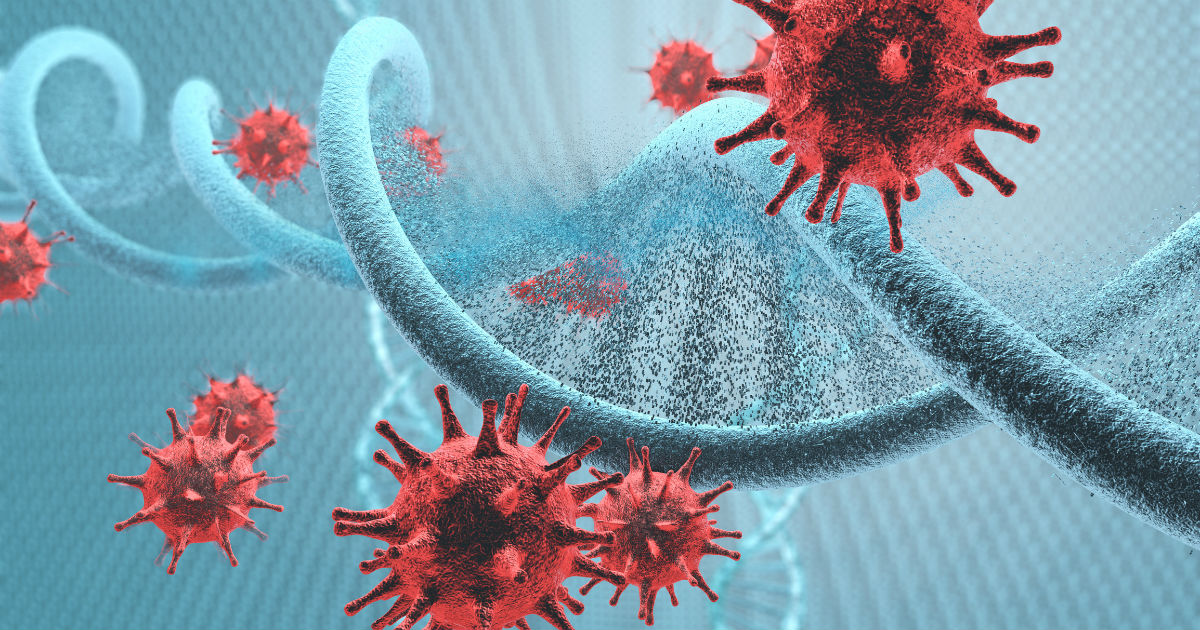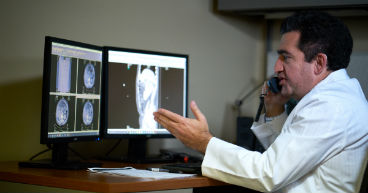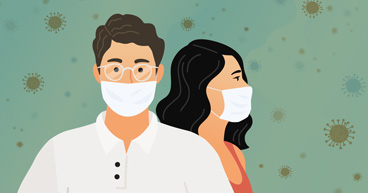
The human immune system is often referred to as an army—and for good reason. This amazing network of cells, proteins, tissue and organs is on constant alert to attack viruses, germs and damaged cells. Like regimens or units, immune cells are divided into different types and groups, each with a specific job to perform. Immune cells communicate regularly, sending signals when viruses are detected. These cells, especially T-cells, also develop intelligence and remember invaders so they can attack them again when necessary.
But like spies that infiltrate the military, cancer cells have methods they use to counterattack the immune system. When that happens, a tumor may begin to grow and spread, and a patient may become more vulnerable to illness. Also, some cancer types and treatments may damage immune cells.
A compromised immune system is one of the main reasons cancer patients have been alerted to be vigilant during the spread of COVID-19. Cancer patients, like other with existing illnesses, may be more susceptible to the virus and in turn may be more at risk for serious symptoms that may lead to respiratory distress and conditions like pneumonia.
“It is possible that cancer patients are at a higher risk of more severe symptoms because of their lowered immune system due to medications and treatment,” says Jeffrey A. Metts, MD, Chief of Medicine at our Atlanta hospital
The U.S. Centers for Disease Control and Prevention (CDC) continues to update the list of symptoms COVID-19 patients may experience. Its latest update says common symptoms of the infection include a cough and shortness of breath or at least two of the following:
- Fever
- Chills
- Repeated shaking with chills
- Muscle pain
- Headache
- Sore throat
- New loss of taste or smell
Cancer vs. the immune system
Immune cells are programmed to find and destroy germs and viruses that may make us sick. They also are on the prowl for defective or mutated cells, including cancer cells or precancerous cells. But some cancer cells have a bag of tricks to use against the immune system:
- Cancer cells often find ways to shut down immune cells or trick them into dormancy.
- Cancer may lead to T-cell exhaustion, which occurs when immune cells on constant attack eventually become depleted and overwhelmed.
- Some cancers, such as leukemia or lymphoma, start in bone marrow or the lymph system, disrupting the production of healthy immune cells.
- Cancer cells may metastasize in bone, affecting how many new immune cells are produced.
Cancer treatments, especially chemotherapy, may kill or damage immune cells, making patients more vulnerable to diseases. Chemotherapy drugs are designed to attack fast-growing cells, like cancer cells. Chemotherapy may also attack fast-growing immune cells in bone marrow, weakening the immune system. CAR T-cell therapy, which uses re-engineered T-cells to treat patients with some forms of leukemia and lymphoma, may also attack healthy B-cells, increasing the risk of infections in some patients.
Fighting back
Cutting-edge research into cancer’s relationship with the immune system has led to innovative immunotherapy treatments, including checkpoint inhibitors and CAR T-cell therapy. These treatments are designed to help T-cells find cancer cells and kill them.
But there is no evidence that immunotherapy drugs used to activate T-cells against cancer help support the immune system against viruses, such as COVID-19 or influenza. So, it is important that cancer patients take steps to support their immune system. “One of the most important things an individual cancer patient can do to support the functioning of their own immune system is to maintain a healthy lifestyle, which includes not using any tobacco products, while eating nutritional foods and exercising or being physically active,” says Maurie Markman, MD, President of Medicine and Science at Cancer Treatment Centers of America® (CTCA).
Be sure to consult your doctor before beginning new exercise regimen or if you have questions about the strength of your immune system.
Also, continue to take steps to help prevent exposure to COVID-19, including:
- Washing your hands and face frequently with soap and water for at least 20 seconds
- Avoiding crowds
- Not sharing food
- Keeping your hands away from your eyes, nose or mouth
If you are in active treatment and are concerned about how the COVID-19 situation may impact your care, please contact your care team.
Learn more about making treatment decisions during the COVID-19 outbreak.



